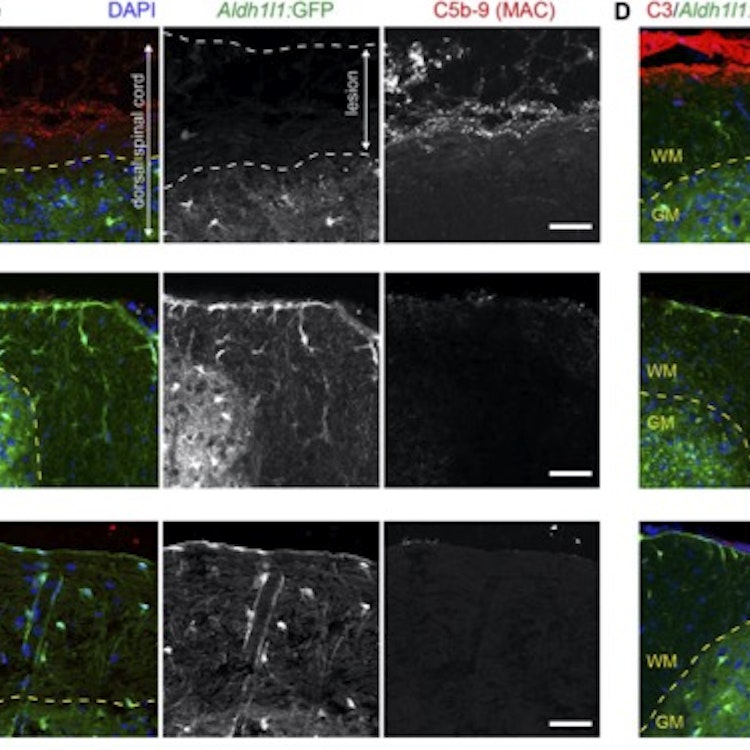
P2R Inhibitors Prevent Antibody‑Mediated Complement Activation in an Animal Model of Neuromyelitis Optica
Purinergic2 receptors (P2Rs) contribute to disease-related immune cell signaling and are upregulated in various pathological settings, including neuroinflammation. P2R inhibitors have been used to treat inflammatory diseases and can protect against complement-mediated cell injury. However, the mechanisms behind these anti-inflammatory properties of P2R inhibitors are not well understood, and their potential in CNS autoimmunity is underexplored. Here, we tested the effects of P2R inhibitors on glial toxicity in a mouse model of neuromyelitis optica spectrum disorder (NMOSD). NMOSD is a destructive CNS autoimmune disorder, in which autoantibodies against astrocytic surface antigen Aquaporin 4 (AQP4) mediate complement-dependent loss of astrocytes. Using two-photon microscopy in vivo, we found that various classes of P2R inhibitors prevented AQP4-IgG/complement-dependent astrocyte death. In vitro, these drugs inhibited the binding of AQP4-IgG or MOG-IgG to their antigen in a dose-dependent manner. Size-exclusion chromatography and circular dichroism spectroscopy revealed a partial unfolding of antibodies in the presence of various P2R inhibitors, suggesting a shared interference with IgG antibodies leading to their conformational change. Our study demonstrates that P2R inhibitors can disrupt complement activation by direct interaction with IgG. This mechanism is likely to influence the role of P2R inhibitors in autoimmune disease models and their therapeutic impact in human disease.
Download
kalluri2022.pdfResearchers



